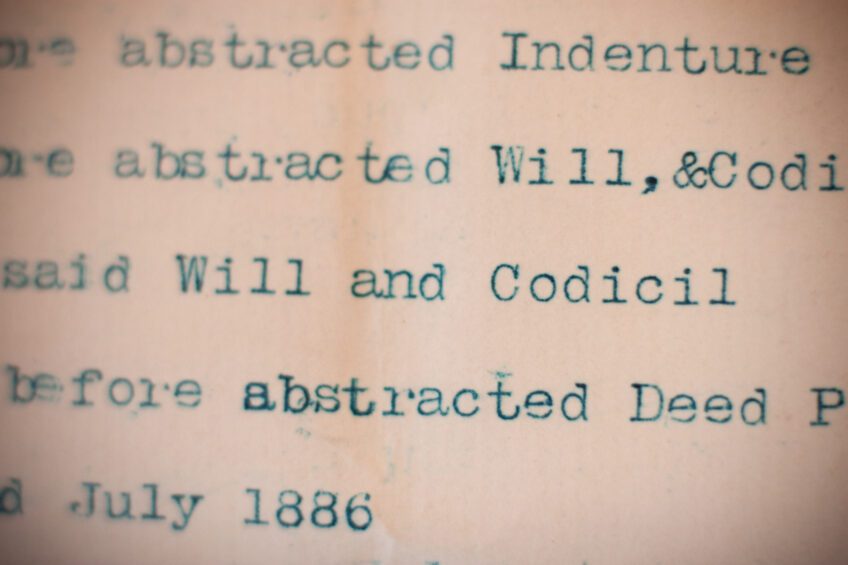Under English and Welsh law, you have the right to leave your estate to whomever you wish, however there is a key limitation that you should be aware of, says Stephanie Whitchurch from Tallents Solicitors in Newark which could lead to someone disputing an inheritance.
 Under the Inheritance (Provision for Family and Dependents) Act 1975 (“the Inheritance Act”), spouses and certain eligible persons of a deceased person domiciled in England and Wales may apply to court for an order on the grounds that the Will or intestacy has not made reasonable financial provision for them.
Under the Inheritance (Provision for Family and Dependents) Act 1975 (“the Inheritance Act”), spouses and certain eligible persons of a deceased person domiciled in England and Wales may apply to court for an order on the grounds that the Will or intestacy has not made reasonable financial provision for them.
Who can make a claim under the Inheritance Act?
The Inheritance Act sets out the categories of people who are allowed to apply for financial provision, namely:
- the spouse or civil partner of the deceased;
- the former spouse or civil partner of the deceased (as long as that person has not remarried/entered into a subsequent civil partnership);
- a person who, for the continuous two years prior to the death, was living with the deceased as spouse or civil partner;
- a child of the deceased;
- a person who was treated as a child of the family by the deceased, in the context of a marriage, civil partnership or any family in which the deceased stood in the role of a parent;
- any other person who was being ‘maintained’ by the deceased prior to their death. This might apply where they were financially supported, directly or indirectly by the deceased, for example where gifts were given by the deceased during their lifetime or the provision of an indirect benefit, such as by permitting a person to live rent free in their home.
Is there a time limit to making a claim under the Inheritance Act?
Applicants must start a court claim within 6 months of a grant of probate, grant of representation or grant of letters being issued. The Court has discretion to extend the time limit to claims but only in exceptional circumstances which prevented a person from bringing a claim earlier e.g. where they were too unwell to commence proceedings or they were unaware of their grounds to make a claim.
How will the Court consider the claim?
The Court will consider three questions:
- Does the Will or intestacy make reasonable financial provision for the applicant?
- If not, should the Court intervene so as to award further provision from the estate?
- If so, what type of provision is appropriate?
The question of reasonable financial provision (i.e. does what the claimant received from the estate amount to reasonable provision for their maintenance?) differs depending on the status of the person who is making the claim:
- If the claimant is the spouse or civil partner, then their financial provision will be based on what is reasonable for them to receive, whether or not it is for maintenance;
- If the claimant is any other person, then their financial provision will be based on what it would be reasonable for them to receive for their maintenance.
For all applicants, whether reasonable financial provision has been made will be assessed objectively by the Court, taking into account all of the relevant circumstances. The Inheritance Act specifies certain factors which the Court must consider:
- the current and future financial resources and needs of the applicant and the beneficiaries of the estate,
- any obligations and responsibilities which the deceased had towards the applicant and the beneficiaries;
- the size and nature of the estate;
- any physical or mental disability of the applicant or any beneficiary; and
- any other matter which the Court may consider relevant, for example any party’s conduct.
Where the applicant is a spouse or civil partner, the Court will also consider what they would have likely received had the marriage or civil partnership been terminated by divorce or dissolution rather than death. Here the Court will therefore consider the age of the applicant, the length of the marriage/civil partnership and the applicant’s contribution to the welfare of the deceased’s home and family.
What can the Court award?
The Court’s powers are very wide and it has numerous options available when making an order. The Court may order that a specific lump sum be paid to the applicant. Alternatively the Court can order that smaller amounts be paid regularly to the applicant, in the form of periodic payments for their maintenance. An order for the transfer of property to the applicant can be made. The Court may also declare that any property be held on trust for the applicant and/or the other beneficiaries.
Considering bringing an Inheritance Act claim?
Stephanie notes that this is a very complicated and technical area of law to understand and there are many considerations which have to be taken into account when assessing whether a person may have a meritorious claim. However, she stresses that if an applicant wishes to pursue a claim, they must do promptly in view of the strict time limits.
We are experts in this field and can act for either applicants, beneficiaries or the executors of estates which are contested in this way.
If this is an issue which might be relevant to a matter which you are involved in, please contact us for further advice. Also, please visit our Wills, estate and succession planning pages for further information.



